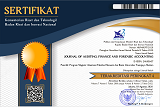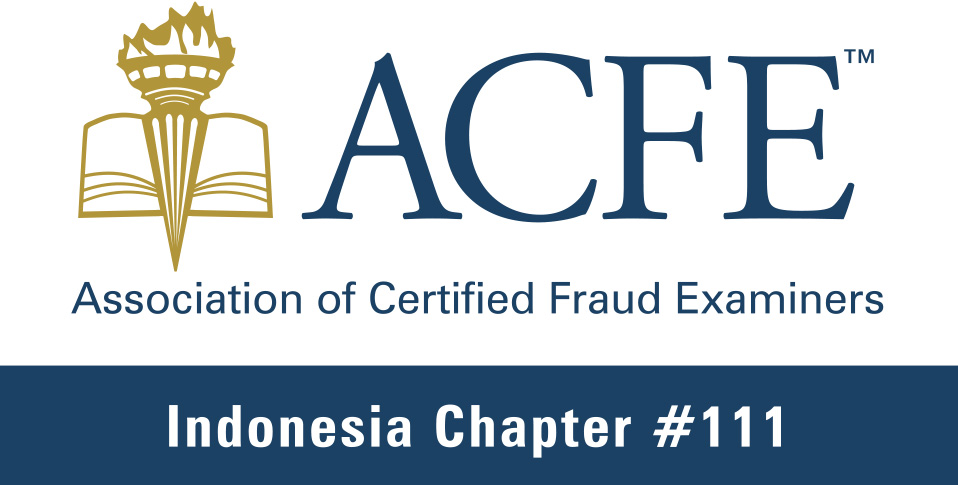The Impact of Final and Interim Cash Dividends on Earnings Quality: Timing Matters
Abstract
This research examines and evaluates the impact of cash dividends on the quality of corporate earnings. Unlike prior studies, this research emphasizes the distinction between cash dividends based on their timing of distribution. The sample comprises non-financial companies listed on the Indonesia Stock Exchange, selected through purposive sampling, resulting in a dataset of 1,428 observations. To test the hypotheses, the study employs descriptive and frequency statistical analyses alongside multiple regression techniques. Grounded in signaling theory, the findings reveal that cash dividends and final cash dividends positively influence the quality of corporate earnings, whereas interim cash dividends show no significant effect. Implications for investors provide insights into whether cash dividend distribution can serve as a signal of earnings quality credibility and help investors make more informed investment decisions, not merely by considering the dividend amount but also by assessing whether it truly reflects high-quality earnings. In addition, the findings of this study may serve as a valuable consideration for regulators in formulating policies that promote information transparency, particularly regarding dividend distribution practices and earnings reporting quality.
Keywords
Full Text:
PDFReferences
Al-Najjar, B., & Kilincarslan, E. (2017). Corporate dividend decisions and dividend smoothing: New evidence from an empirical study of Turkish firms. International Journal of Managerial Finance, 13(3), 304-331. https://doi.org/10.1108/IJMF-10-2016-0191.
Al-Yahyaee, K. H., Pham, T. M., & Walter, T. S. (2011). The information content of cash dividend announcements in a unique environment. Journal of Banking & Finance, 35(3), 606-612. https://doi.org/10.1016/j.jbankfin.2010.03.004.
AlQadasi, A. (2018). The effectiveness of internal corporate governance and audit quality: the role of ownership concentration – Malaysian evidence. Corporate Governance: The International Journal of Business in Society, 18(2), 233-253. https://doi.org/10.1108/CG-02-2017-0043.
Balachandran, B. (2003). UK interim and final dividend reductions: a note on price reaction. European Journal of Finance 9(4), 379-390. https://doi.org/10.1080/1351847022000028430.
Dasilas, A., Lyroudi, K., & Ginoglou, D. (2008). Joint effects of interim dividend and earnings announcements in Greece. Studies in Economics and Finance, 25(4), 212-232. https://doi.org/10.1108/10867370810918128.
Deng, L., Li, S., & Liao, M. (2017). Dividends and earnings quality: Evidence from China. International Review of Economics & Finance, 48, 255-268. https://doi.org/10.1016/j.iref.2016.12.011.
Denis, D. J., Denis, D. K., & Sarin, A. (1994). The information content of dividend changes: Cash flow signaling, overinvestment, and dividend clienteles. Journal of financial and quantitative analysis, 29(4), 567-587. https://doi.org/10.2307/2331110.
Easterbrook, F. H. (1984). Two agency-cost explanations of dividends. The American economic review, 74(4), 650-659.
Felimban, R., Floros, C., & Nguyen, A.-N. (2018). The impact of dividend announcements on share price and trading volume: Empirical evidence from the Gulf Cooperation Council (GCC) countries. Journal of Economic Studies, 45(2), 210-230. https://doi.org/10.1108/JES-03-2017-0069.
Grullon, G., Michaely, R., Benartzi, S., & Thaler, R. H. (2005). Dividend changes do not signal changes in future profitability. The Journal of Business, 78(5), 1659-1682. https://doi.org/10.1086/431438.
Ham, C. G., Kaplan, Z. R., & Leary, M. T. (2020). Do dividends convey information about future earnings?. Journal of Financial Economics, 136(2), 547-570. https://doi.org/10.1016/j.jfineco.2019.10.006.
Hussain, A., & Akbar, M. (2022). Dividend policy and earnings management: Do agency problem and financing constraints matter?. Borsa Istanbul Review, 22(5), 839-853. https://doi.org/10.1016/j.bir.2022.05.003.
Indonesia, R. (2007). Undang-undang Republik Indonesia nomor 40 tahun 2007 tentang perseroan terbatas. Jakarta: Sekretariat Negara.
Istianingsih, n. (2021). Earnings quality as a link between corporate governance implementation and firm performance. International Journal of Management Science and Engineering Management, 16(4), 290-301. https://doi.org/10.1080/17509653.2021.1974969.
Jensen, M. C. (1986). Agency costs of free cash flow, corporate finance, and takeovers. The American economic review, 76(2), 323-329.
Kamel, H., & Elbanna, S. (2012). Investigating the phenomenon of earnings management in the Egyptian stock market. Corporate Governance: The international journal of business in society, 12(3), 337-352. https://doi.org/10.1108/14720701211234591.
Kargar, E. F., & Ahmadi, G. R. (2013). The relationship between free cash flows and agency costs levels: Evidence from Tehran stock exchange. Research Journal of Finance and Accounting, 4(14), 51-65.
Kent Baker, H., & Powell Gary, E. (2012). Dividend policy in Indonesia: survey evidence from executives. Journal of Asia Business Studies, 6(1), 79-92. https://doi.org/10.1108/15587891211191399.
Kothari, S. P., Leone, A. J., & Wasley, C. E. (2005). Performance matched discretionary accrual measures. Journal of accounting and economics, 39(1), 163-197. https://doi.org/10.1016/j.jacceco.2004.11.002.
Lee, J. H. (2022). Earnings quality, foreign investor and dividends. Journal of Derivatives and Quantitative Studies, 30(1), 58-72. https://doi.org/10.1108/JDQS-07-2021-0018.
Leszczensky, L., & Wolbring, T. (2022). How to deal with reverse causality using panel data? Recommendations for researchers based on a simulation study. Sociological Methods & Research, 51(2), 837-865. https://doi.org/10.1177/0049124119882473.
McNichols, M. F. (2002). Discussion of the quality of accruals and earnings: The role of accrual estimation errors. The Accounting Review, 77(s-1), 61-69.
Miller, M. H., & Rock, K. (1985). Dividend Policy under Asymmetric Information. The Journal of Finance, 40(4), 1031-1051. https://doi.org/10.2307/2328393.
Mousa, G. A., & Desoky, A. (2019). The effect of dividend payments and firm’s attributes on earnings quality: Empirical evidence from Egypt. Investment Management and Financial Innovations, 16(1), 14-29. https://doi.org/10.21511/imfi.16(1).2019.02.
Mulchandani, K., Mulchandani, K., & Wasan, P. (2020). Dividends and earnings quality: Evidence from India. IIMB Management Review, 32(2), 166-176. https://doi.org/10.1016/j.iimb.2019.10.001.
Nguyen, T. T. N., & Bui, P. K. (2019). Dividend policy and earnings quality in Vietnam. Journal of Asian Business and Economic Studies, 26(2), 301-312. https://doi.org/10.1108/JABES-07-2018-0047.
Ozo, F. K., & Arun, T. G. (2019). Stock market reaction to cash dividends: evidence from the Nigerian stock market. Managerial Finance, 45(3), 366-380. https://doi.org/10.1108/MF-09-2017-0351.
Saleh, I., Afifa, M. A., & Alsufy, F. (2020). Does earnings quality affect companies’ performance? New evidence from the Jordanian market. The Journal of Asian Finance, Economics and Business, 7(11), 33-43. https://doi.org/10.13106/jafeb.2020.vol7.no11.033
Sarawana, S., & Destriana, N. (2015). Pengaruh mekanisme tata kelola perusahaan, pendanaan hutang perusahaan, dividen serta ukuran perusahaan terhadap kualitas laba. Jurnal Bisnis Dan Akuntansi, 17(2), 156-167. https://doi.org/10.34208/jba.v17i2.27.
Sirait, F., & Siregar, S. V. (2014). Dividend payment and earnings quality: evidence from Indonesia. International Journal of Accounting and Information Management, 22(2), 103-117. https://doi.org/10.1108/IJAIM-04-2013-0034.
Skinner, D., & Soltes, E. (2009). What Do Dividends Tell Us about Earnings Quality?. Review of Accounting Studies, 16, 1-28. https://doi.org/10.1007/s11142-009-9113-8
Spence, M. (1973) Job Market Signaling. The Quarterly Journal of Economics, 87(3), 355-374.
Su, Z.-q., Fung, H.-G., Huang, D.-s., & Shen, C.-H. (2014). Cash dividends, expropriation, and political connections: Evidence from China. International Review of Economics & Finance, 29, 260-272. https://doi.org/10.1016/j.iref.2013.05.017.
Sunday, D., Manafa, C. J., & Nduokafor, C. O. (2023). Nexus between Dividend Payment and Earnings Quality of Quoted Manufacturing Firms in Nigeria. Journal of Accounting and Financial Management, 9(8), 59-80. https://doi.org/10.56201/jafm.v9.no8.2023.pg59.80.
Tong, Y., & Miao, B. (2011). Are Dividends Associated with the Quality of Earnings?. Accounting Horizons, 25, 183-205. https://doi.org/10.2308/acch.2011.25.1.183
Wardhana, L. I., & Tandelilin, E. (2018). Do We Need a Mandatory Dividend Regulation? The Case of the Indonesian Capital Market. Gadjah Mada International Journal of Business, 20(1), 33-58.
Zadeh, F. N., Askarany, D., & Asl, S. A. (2022). Accounting conservatism and earnings quality. Journal of Risk and Financial Management, 15(9), 1-18. https://doi.org/10.3390/jrfm15090413.
DOI: https://doi.org/10.21107/jaffa.v13i2.31769
Refbacks
- There are currently no refbacks.
Our Journal indexed by:
Our support tools using:



This work is licensed under a Creative Commons Attribution 4.0 International License.












